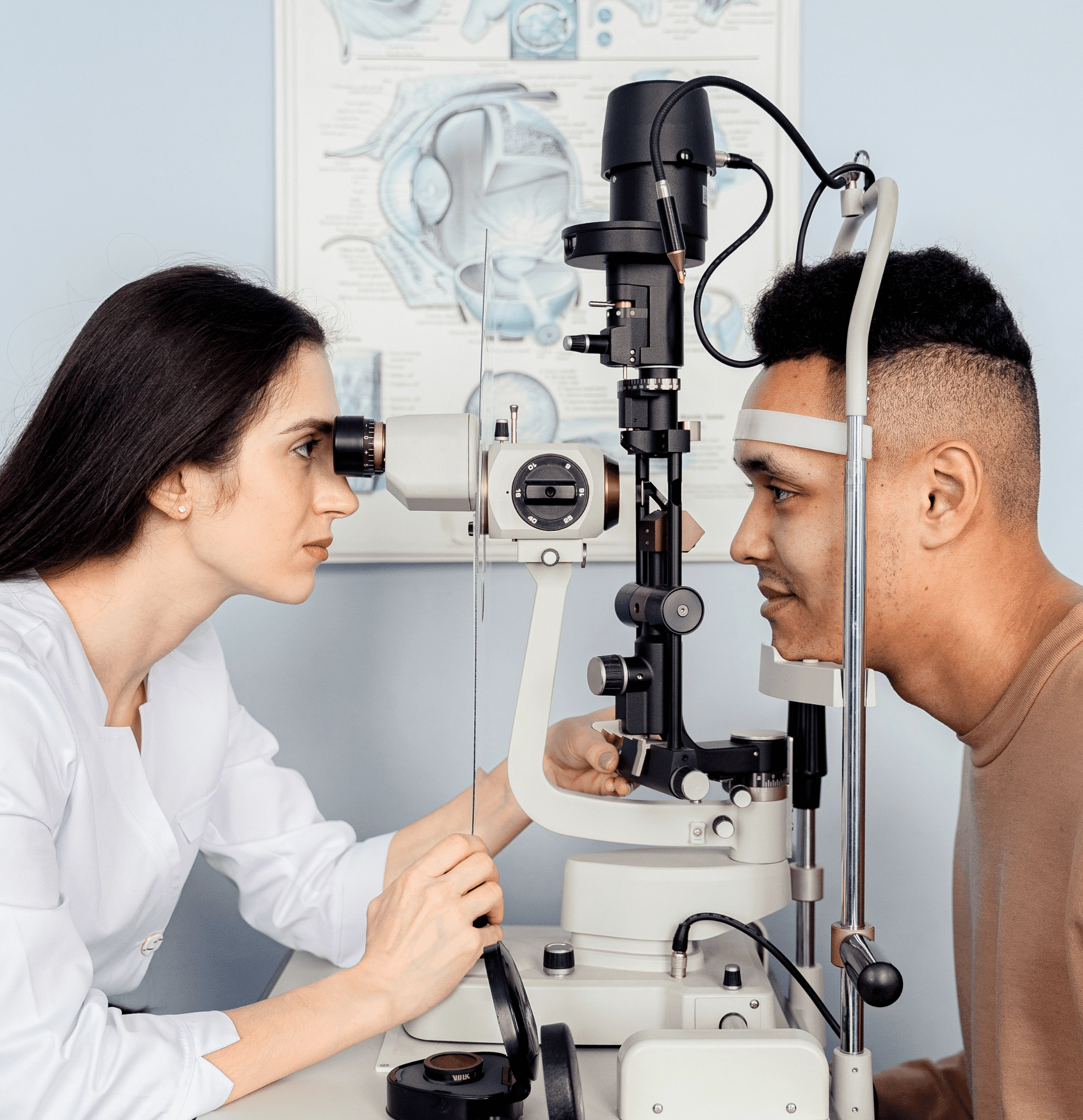Wondering how often to get an eye exam? Not sure when you should see an optometrist? To clear things up, we’ve put together a Q&A guide that explains what you need to know. We sat down with a few of our team members to answer your most pressing questions about eye exam appointments. Keep in mind that these are guidelines only; your best bet is to talk to your Josephson professionals.
Q: Thanks for taking the time to talk to us. Are regular optometrist visits crucial? When should I see an optometrist?
A: Think of an optometrist as a healthcare professional for your eyes. Even if your vision seems pristine, optometrists can detect early signs of conditions that could be detrimental to your eyes and overall health. An eye exam serves as your primary defence against potential eye issues and diseases.
Q: How often should I go to the eye doctor if I wear glasses?
A: Corrective eyewear users should typically aim for a check-up every two years. But, if there’s a history of eye diseases in your family or if you have conditions like diabetes that can impact your vision, a more frequent annual visit is recommended.
Q: I’ve recently celebrated my 50th birthday. How often should you get your eyes checked after the age of 50?
A: Happy belated! As you embrace the golden years, being more attentive to your eyes is vital. The risk for eye diseases, such as glaucoma, cataracts, and macular degeneration, increases after age 50. Comprehensive eye exams should become a yearly or biennial routine. These exams serve not just for your eyes but can also hint at systemic health conditions.
Q: Perfect vision equals no optometrist visits. True or false?
A: False. If you are asking yourself if you should go to the eye doctor if you have perfect vision, don’t delay. Perfect vision or 20/20 vision doesn’t mean your eyes are immune to health issues. Optometrists do more than just prescribe glasses. They are trained to assess the overall health of your eyes and can spot early symptoms of various conditions, many of which might not immediately affect vision.
Q: What can I anticipate during a standard eye exam?
A: Expect a complete assessment of your eye health. It starts with gauging visual clarity, often using an eye chart. Your optometrist might then determine if corrective lenses are needed. Pupil dilation might require to view your retina and optic nerve better. An eye exam entails a multi-pronged approach, from eye function and alignment to overall health.
Q: Suppose I notice changes in my vision or feel discomfort. How urgent is an optometrist visit?
A: Some symptoms should never be taken lightly. If you experience sudden vision alterations, persistent discomfort, redness, frequent headaches, or even see flashes of light or floaters, it’s a signal to prioritize a visit to your optometrist. These symptoms can be early warnings of more severe underlying conditions.
Q: Are there any other reasons I might need to see an optometrist—apart from the typical recommendations?
A: Indeed, several factors might necessitate more frequent visits. Examples include having a demanding job on your eyes, taking medications that affect vision, or having had a recent surgery or injury related to the eyes.
Seeing clearly is both a gift and a responsibility. Prioritizing regular optometrist visits ensures clear vision and prolonged eye health. Keep this Q&A guide handy to remember how often you should get an eye exam. It will help ensure that you and your family are always in the know and clear about your eye health! Talk to your Josephson professionals today!
Read also


